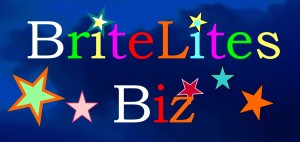Every day when you wake up, ask yourself, “What do I really, really, really want?” You have to say, “Really, really, really.”
Rather than my own take on things, Pablo Casals offers a great thought for the new year.
You Are A Marvel
Each second we live is a new and unique moment of the universe, a moment that will never be again … And what do we teach our children? We teach them that two and two make four, and that Paris is the capital of France.
When will we also teach them what they are?
We should say to each of them: Do you know what you are? You are a marvel. You are unique. In all the years that have passed, there has never been another child like you. Your legs, your arms, your clever fingers, the way you move.
You may become a Shakespeare, a Michaelangelo, a Beethoven. You have the capacity for anything. Yes, you are a marvel. And when you grow up, can you then harm another who is, like you, a marvel?
You must work – we must all work – to make the world worthy of its children.
Sandra Gould Ford
BriteLitesBiz@aol.com
As with movies, some novels are vivid, full of action, explosions and
tension. Others are quiet studies of characters whose situations appear normal, commonplace and unexciting. In this excerpt from Guy de Maupassant’s longer essay, the author explains the value and significance of the quiet, the character-driven or literary novel.
Plot and Character Driven Novels
Their Difference and Possibilities
Part One of Two
Understanding The Plot-Driven or Dramatic Novel
The novelist who transforms the constant, brutal, and disagreeable truth, in order to draw from it an exceptional and seducing adventure, ought, without exaggerated care for verisimilitude, to manipulate the events according to his taste, to prepare and arrange them to please the reader, to move him, or to touch his sympathy. The plan of his novel is only a series of ingenious combinations leading skillfully to the climax. The incidents are disposed and graduated toward the point of culmination and the final effect, which is a capital and decisive event, satisfying all the curiosity aroused at the beginning, putting up a barrier to interest, and terminating so completely the story told that one does not longer care to know what will happen to-morrow to the most interest of the characters.
Understanding The Character-Driven or Literary Novel
The novelist, however, who professes to give us an exact image of life ought to avoid carefully all linking of events that seem exceptional. His aim is not to tell a story, to amuse us, to touch us, but to force us to think, to understand the deep and hidden significance of events. Through his having seen and meditated, he sees the universe, things, facts, and men in a fashion that is peculiarly his own and that results from the total of his pondered observations. It is this personal vision of the world that he seeks to communicate to us by reproducing it in his book. In order to move us as he himself has been moved by the spectacle of life, he must reproduce it before our eyes with scrupulous similitude. He must, then, compose his work in a manner so skillful, so artful, and in appearance so simple, that it is impossible to perceive or to point out the plan, to discover his intentions.
Instead of devising an adventure and unfolding it in a manner suited to render it interesting to the end, he will take his character or characters at a certain period of their existence and conduct them, by natural transitions, to the period following.
So, why read or write such a novel? See Part 2 of 2.
Worth A Look
In each issue, BriteLitesBiz presents a video specially selected to inspire, motivate, enlighten and prompt WordSmithing. Click this link to view a 9-minute video of fantastic chefs battlng to make amazing, and tasty Yule logs.
And
Support BriteLites
To keep BriteLitesBiz deliveing art for healing and high achievement along with information and inspiration for WordSmiths, support by shopping in our galleries where the art can be purchased, either as prints for less than $20 or custom framed. Note the Weekly Specials.












